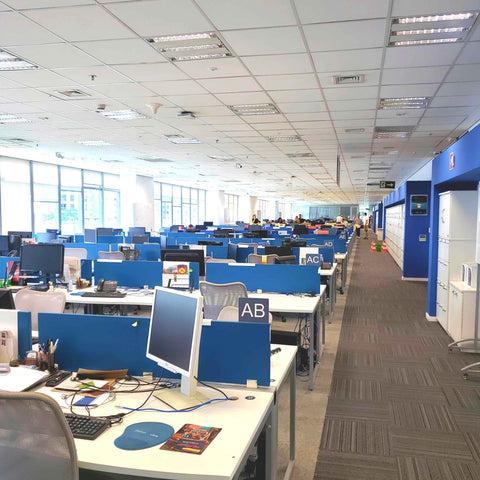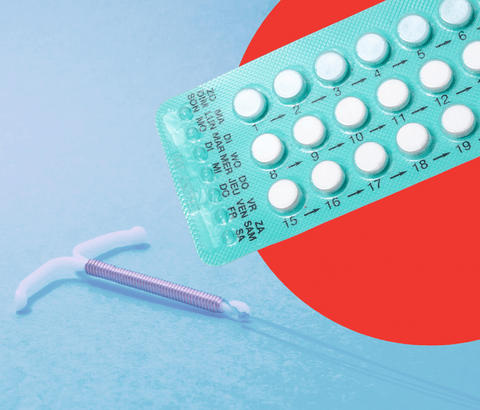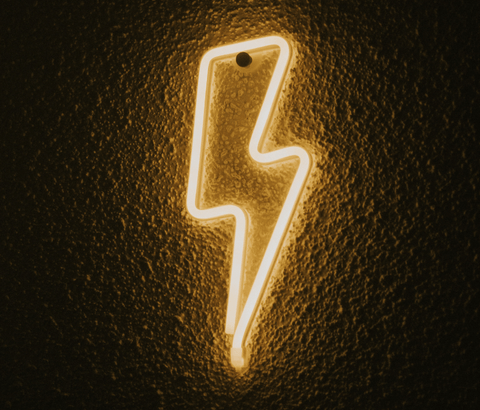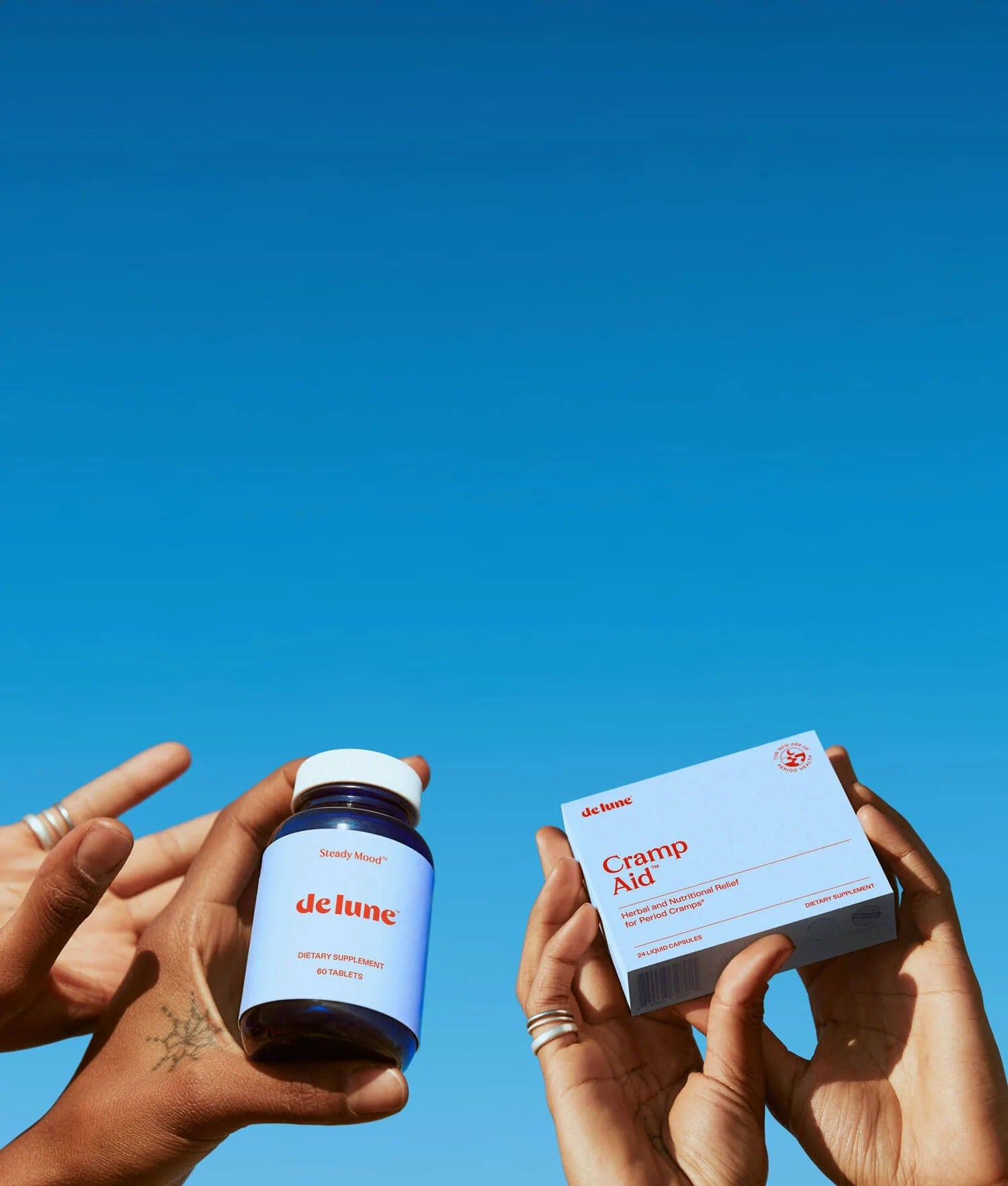You’re not imagining it—your poops are different on your period.
The hormones that drive the ebbs and flows of your menstrual cycle affect your entire body, and your bowels are no exception.
This article explains:
- The different ways your hormones change your poop on your period
- Why some people get worse period poops than others
- What you can do to make period poops a lot easier.
What are period poops?
Period poops are one symptom of PMS, or premenstrual syndrome. PMS is a full-body phenomenon. It can affect everything from your brain and emotions to your skin and muscles, including the muscles in your GI tract that regulate your poops.
Period poops don’t look or feel the same for everyone. The color, consistency, and smell of your poop is relatively unique to you, so the defining feature of period poops is that they’re different from your poops at other points in your cycle—usually in a more unpleasant way.
They may be harder or softer than usual, come more or less frequently, be a different color, have a stronger odor, or cause bloating and pain.

Why do I get period poops?
In short: hormones. Everything about the menstrual cycle is hormone-driven, including digestive symptoms. Hormones contribute to period poops in two major ways: via prostaglandins and progesterone.
Prostaglandins
This culprit behind your period poops is also behind your period cramps.
Prostaglandins are messenger molecules, and their job is to start the flow of your period. They form in response to the sharp dive your reproductive hormones (estrogen and progesterone) take at the end of your cycle, right before your period. Prostaglandins help shed the uterine lining by forcing the uterine muscles to contract very tightly. When the lining detaches, blood vessels open, and the lining and blood leaves as your period.
But uterine muscles aren’t the only muscles that are sensitive to prostaglandins. The nearby muscles of the GI tract are also affected, and contract more often when prostaglandin levels are high before and during your period. (1)
Normally, poop is moved along the large intestine via gentle muscular rhythms in the intestinal wall. But when prostaglandins show up, those rhythms stop being so gentle. Poop is moved down and out of the large intestine faster than usual, resulting in looser, watery poops or diarrhea.
Progesterone
Progesterone is one of the two primary hormones that drive the menstrual cycle. It rises mid-cycle following ovulation, then falls at the end of the cycle in the days leading up to your period.
Progesterone’s main job is to sustain a potential pregnancy, and it changes the body in all sorts of ways to prepare for pregnancy’s demands. One of progesterone's effects is slowing down the muscles in the intestines (2).
However, the longer your poop sits in your large intestine, the more water is pulled out of your stools, resulting in firmer poops, constipation, and bloating.
PMS-related constipation is most common about a week or so before your period starts, when progesterone levels are at their peak (3). When progesterone levels drop right before your period, however, you may experience a rebound effect. The intestines may move too quickly in progesterone’s absence, resulting in loose stools or diarrhea.

Why are my period poops so bad?
Some people get more painful or problematic poops during their period due to a variety of factors.
IBS
It’s common for people with irritable bowel syndrome (IBS) to experience worsened gastrointestinal symptoms during their period (4). If your period poops are completely liquid, or come with severe weakness, vomiting, or a fever, it’s time to see a doctor.
Prostaglandin overproduction
Everyone with a cycle makes pro-inflammatory prostaglandins at the start of their period, but some people make more than others. The more prostaglandins you produce, the greater your risk of symptoms like cramps, bloating, and painful poops (5).
Scientists are still learning about all the environmental and genetic factors that may cause someone to overproduce prostaglandins, but some research has linked higher prostaglandin production to pro-inflammatory habits like smoking cigarettes, drinking too much alcohol (6), and eating too many animal foods like meat and eggs (7).
Unsupported hormones
Periods aren’t supposed to hurt, and PMS symptoms (including period poops) shouldn’t interfere with your life.
Your gut and your hormones are closely linked. If your period poops are super painful or difficult, your body is sending you a message: your whole cycle—and the hormones that keep it going—need more support.
How to ease and prevent period poops
Eat for digestive health
Poop is heavily influenced by how you eat. Different components in food support easy and regular bowel movements in different ways, and can make a world of difference in how easily you’re able to poop on your period.
Eating for digestive health is important all cycle long, but especially during the later half of your luteal phase (i.e. the week or so leading up to your period). Key components to focus on during this time include:
- Fiber
- Probiotics
- Prebiotics
Fiber is the part of plants that humans can’t break down. Because it stays relatively intact throughout the whole digestive process, it adds bulk to your poops so they’re easier to pass. High-fiber choices include vegetables, fruits, legumes, whole grains, nuts, and seeds. But note: if you introduce many high-fiber foods into your diet at once, it’s very important to drink plenty of water to keep that fiber load moving through the GI tract.
Probiotics are the good bacteria that live in your gut, and they’re critical to cycle health. When your gut bacteria are happy and plentiful, they can help regulate your stress response, reduce inflammation, improve mental health, and metabolize hormones that keep your cycle running smoothly (8, 9). Probiotic foods include fermented foods like yogurt, kefir, kim chi, and sauerkraut.
Prebiotics are foods that, once broken down, feed your good bacteria so they stay healthy and strong. Prebiotic foods are generally also high-fiber foods like vegetables, fruits, whole grains, and seeds. Oats, asparagus, garlic, bananas, onions, apples, and flaxseeds are especially good choices (10).
Drink lots of water
Hard stools, infrequent poops, or constipation are often signs you’re not drinking enough water—your body is pulling more moisture out of your stools because it needs it! (11)
Staying hydrated is also crucial if you have diarrhea. Drinking lots of water may seem counterintuitive when your stools are watery, but diarrhea can cause dehydration without extra water to replenish what was lost. (12)
Avoid caffeine the days before and during your period
Caffeine can stimulate the bowels and make loose stools even looser—not to mention it can make period cramps worse. Energy Flow can help give you the boost you need to overcome period fatigue, without caffeine.
Check your meds for side effects
Constipation and diarrhea are common side effects of many different types of medications (13), including the over-the-counter painkillers like ibuprofen, Advil, and Midol you may be using to manage period cramps (14).
If you suspect your meds are making your period poops worse, ask your doctor about it. Cramp Aid—our non-drug, use-as-needed solution to period cramps—can help reduce your reliance on over-the-counter painkillers for monthly period pain.
Support your whole cycle
Your menstrual cycle is always happening; your period is just one phase. Periods (including the many faces of PMS) are a product of how well your hormones are supported all cycle long.
We designed Steady Mood—our daily multivitamin for multi-symptom PMS relief—to be taken daily for full-cycle hormonal resilience. Because your period gets a lot easier when you have hormonal harmony all month long.

This information is for educational purposes only. It is not a substitute for professional medical advice, and is not intended to diagnose, treat, cure, or prevent any condition.
References
1. Crowell, M. D., Dubin, N. H., Robinson, J. C., Cheskin, L. J., Schuster, M. M., Heller, B. R., & Whitehead, W. E. (1994). Functional bowel disorders in women with dysmenorrhea. American Journal of Gastroenterology (Springer Nature), 89(11).
2. Wald, A., Van Thiel, D. H., Hoechstetter, L., Gavaler, J. S., Egler, K. M., Verm, R., ... & Lester, R. (1981). Gastrointestinal transit: the effect of the menstrual cycle. Gastroenterology, 80(6), 1497-1500.
3. Guarino, M., Cheng, L., Cicala, M., Ripetti, V., Biancani, P., & Behar, J. (2011). Progesterone receptors and serotonin levels in colon epithelial cells from females with slow transit constipation. Neurogastroenterology & Motility, 23(6), 575-e210.
4. Heitkemper, M. M., & Chang, L. (2009). Do fluctuations in ovarian hormones affect gastrointestinal symptoms in women with irritable bowel syndrome?. Gender medicine, 6, 152-167.
5. Chan, W. Y., & Hill, J. C. (1978). Determination of menstrual prostaglandin levels in non-dysmenorrheic and dysmenorrheic subjects. Prostaglandins, 15(2), 365-375.
6. Parazzini, F., Tozzi, L., Mezzopane, R., Luchini, L., Marchini, M., & Fedele, L. (1994). Cigarette smoking, alcohol consumption, and risk of primary dysmenorrhea. Epidemiology, 469-472.
7. Hudson, T. (2007). Using nutrition to relieve primary dysmenorrhea. Alternative & Complementary Therapies, 13(3), 125-128.
8. Peirce, J. M., & Alviña, K. (2019). The role of inflammation and the gut microbiome in depression and anxiety. Journal of neuroscience research, 97(10), 1223-1241.
9. Baker, J. M., Al-Nakkash, L., & Herbst-Kralovetz, M. M. (2017). Estrogen–gut microbiome axis: physiological and clinical implications. Maturitas, 103, 45-53.
10. https://www.umassmed.edu/nutrition/blog/blog-posts/2019/5/the-10-best-prebiotic-foods-for-ibd/
11. Arnaud, M. J. (2003). Mild dehydration: a risk factor of constipation?. European journal of clinical nutrition, 57(2), S88-S95.
12. Barr W, Smith A. Acute diarrhea. Am Fam Physician. 2014 Feb 1;89(3):180-9. PMID: 24506120.
13. https://www.health.harvard.edu/staying-healthy/what-to-do-when-medication-makes-you-constipated
14. U.S. Food & Drug Administration. “Medication Guide for Nonsteroidal Anti-inflammatory Drugs (NSAIDs).” May 2016.







